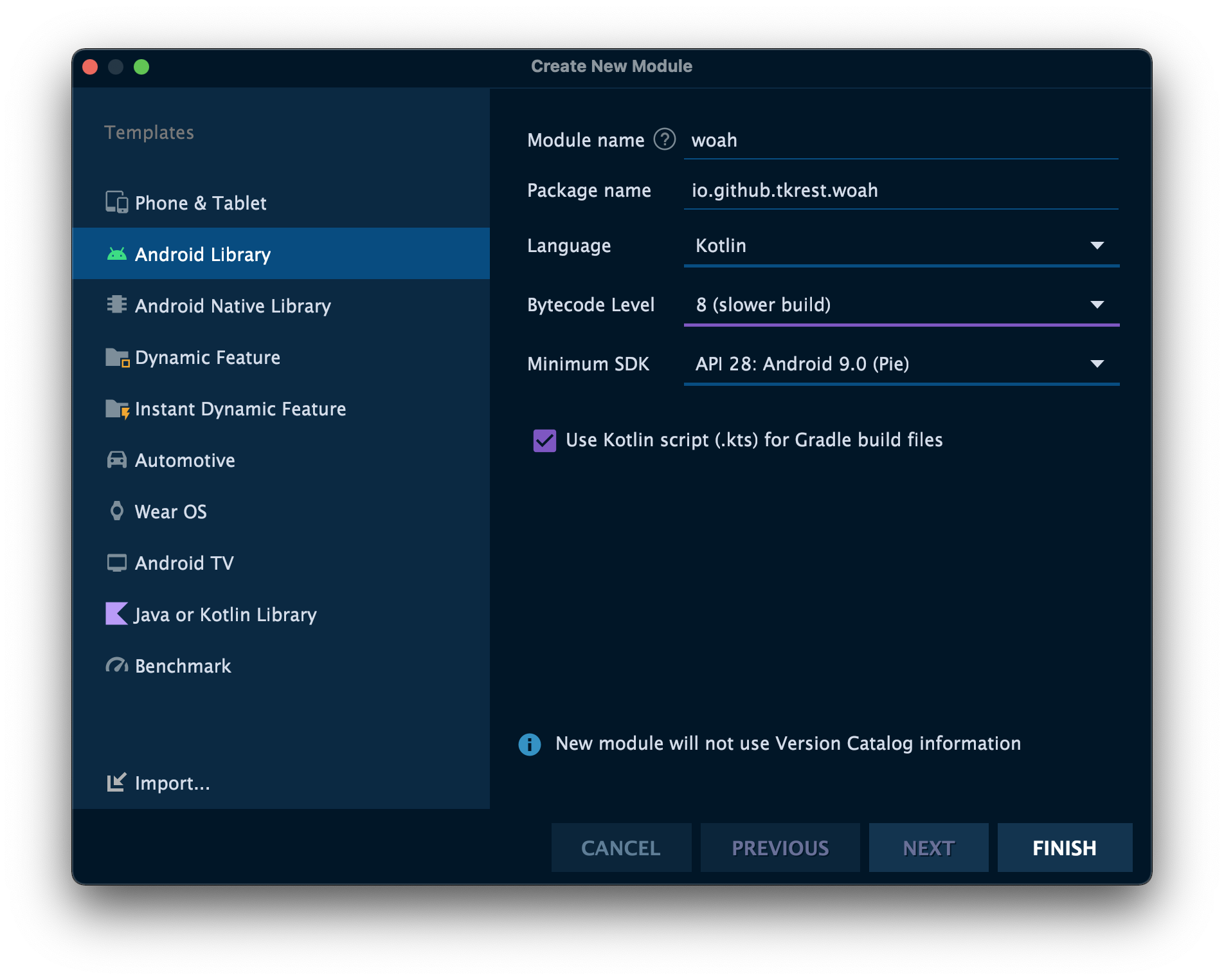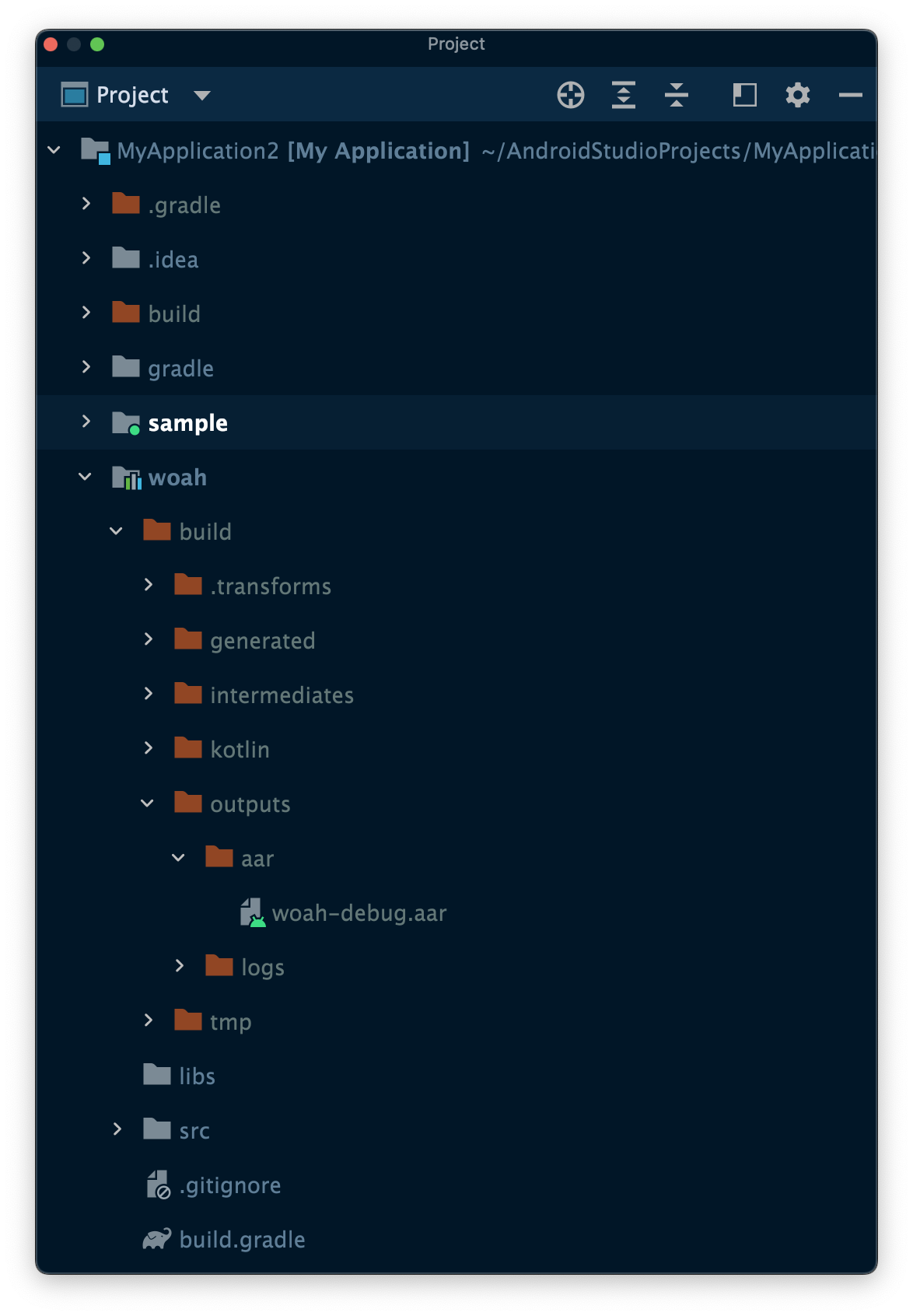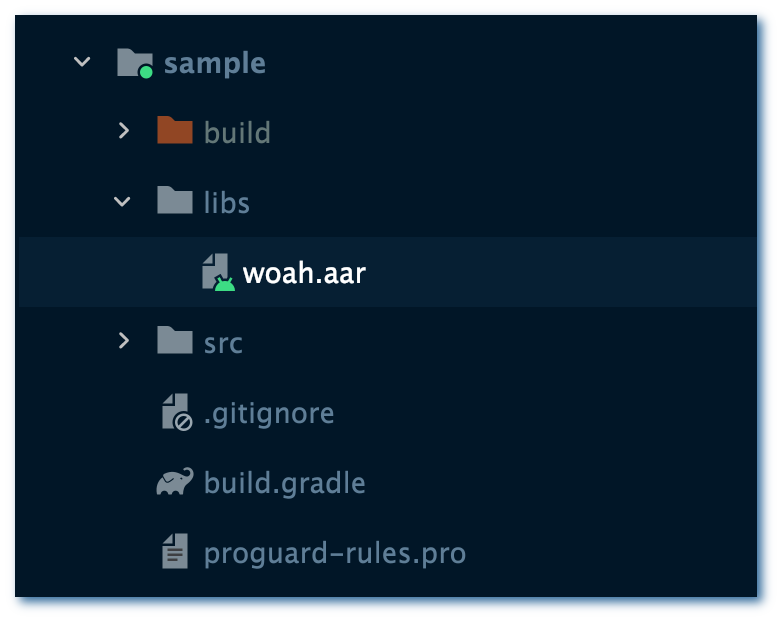

How to Create an Android Library
source link: https://hackernoon.com/how-to-create-an-android-library
Go to the source link to view the article. You can view the picture content, updated content and better typesetting reading experience. If the link is broken, please click the button below to view the snapshot at that time.

When developing an Android application, we can generate an AAR file and use it in different android projects.
Creating an Android Library will save you time compiling and running your project, and you can share existing services, images, resources, layouts with other people.
Libraries make reusing existing code very convenient.
As you build your library, remember this quote:
“If you wish to make an apple pie from scratch, you must first invent the universe.” ― Carl Sagan, Cosmos
So let’s get started.
Audio Presented by
audio element.I'm 5+ years of experience in building Mobile apps developer, I have worked on Android, and iOS projects
When developing an Android application, we can generate an AAR file and use it in different android projects.
Creating an Android Library will save you time compiling and running your project, and you can share existing services, images, resources, layouts with other people.
Libraries make reusing existing code very convenient.
As you build your library, remember this quote:
“If you wish to make an apple pie from scratch, you must first invent the universe.” ― Carl Sagan, Cosmos
So let’s get started.
Creating an Android Library
Starting process:
Project Setup → Open a new project → Select an Empty Project Template
This would create an empty Android project.
Click File > New > New Module.
In the Create New Module window that appears, click Android Library

Then give your library a name and select a minimum SDK version for the code in the library, then click Finish.
The library module appears in the Project panel on the left.
At the top of the file, you should include the following line if it is not already there.
apply plugin: 'com.android.library'~/woah/build.gradle
plugins {
id 'org.jetbrains.kotlin.android'
id 'com.android.library'
}
android {
compileSdk 31
compileOptions {
targetCompatibility JavaVersion.VERSION_1_8
}
buildTypes {
release {
minifyEnabled true
proguardFiles getDefaultProguardFile('proguard-android-optimize.txt'), 'proguard-rules.pro'
}
}
}
dependencies {
implementation 'androidx.core:core-ktx:1.7.0'
}Try to simply Build > Rebuild project or execute in terminal:
./gradlew assembleRelease or choose assembleRelease from Android Studio's Gradle menu.
After a successful build, First switch to the project view in the left panel and navigate as sown below.
AAR file should appear in ~/woah/build/outputs/aar/

AAR files can contain Android resources and a manifest file, which allows you to bundle in shared resources like layouts and drawables in addition to Java classes and methods.
AAR files can contain C/C++ libraries for use by the app module's C/C++ code.
Implement Your logic in your Library Module
Let’s write a simple library that is shown when your app gets crashed.
interface CrashListener {
fun onUncaughtException(thread: Thread, throwable: Throwable)
}
object Woah {
@JvmStatic
fun init(crashListener: CrashListener) {
Thread.setDefaultUncaughtExceptionHandler { p0, p1 ->
crashListener.onUncaughtException(p0, p1)
}
}
}Adding @Keep on a class protects the class from removing by proguard during optimization.
Don’t use default resource names such as colorAccent or colorPrimary in resources.
Default host app resources will always be prioritized.
How to Integrate AAR Library
Just move the AAR file to the libs directory.

Then add in build.gradle file:
dependencies {
implementation project(':woah')
implementation fileTree(dir: "libs", include: ["*.aar"])
...
}Conclusion
In this guide, we have covered all the steps you need to take to create an Android Library.
The goal of creating an Android Library should be to develop more user-friendly interfaces that can be reused.
Resources:
Sample (full code)
https://github.com/tkrest/woah
Android-library
https://developer.android.com/studio/projects/android-library
Dependencies
Recommend
About Joyk
Aggregate valuable and interesting links.
Joyk means Joy of geeK